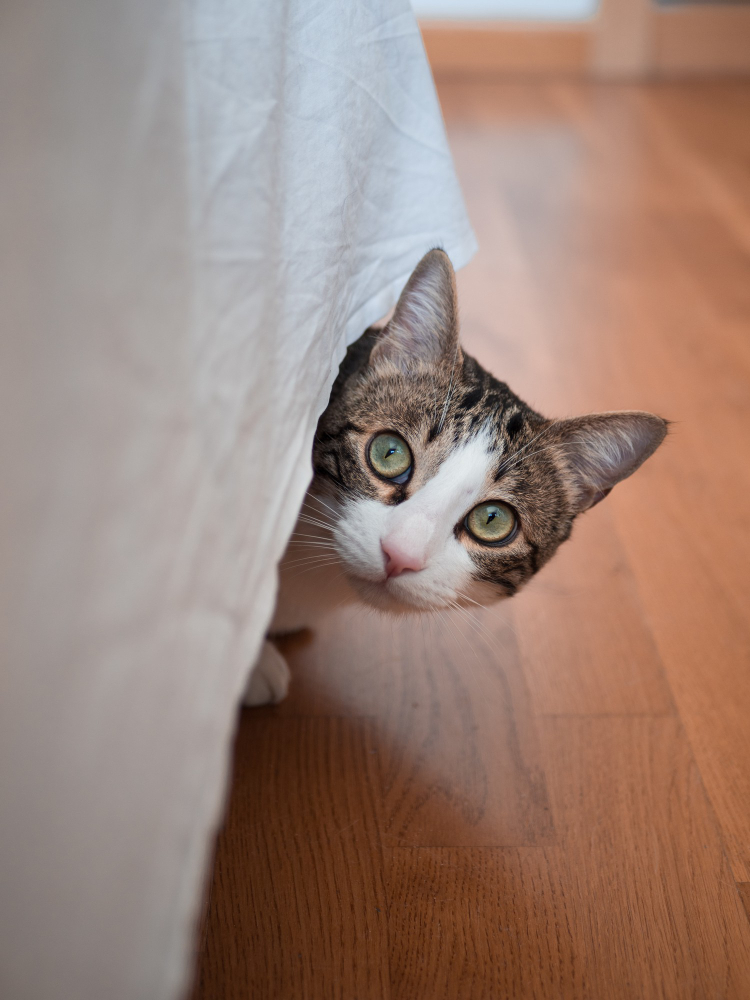
Cats are naturally curious and independent creatures, but they can also be prone to anxiety. Just like humans, cats can experience stress and anxiety in response to a variety of triggers, such as changes in their environment, loud noises, or new people. While some anxiety is normal, excessive anxiety can have a negative impact on a cat’s health and behavior.
Respect Your Cat’s Boundaries
Cats are creatures of habit. Any changes in their environment, whether it be people, the environment itself (such as moving homes) or a new animal can cause their anxiety levels to increase.
When changes in the environment are happening your cat may need more space than normal to acclimate. This may be distressing for you as their cat parent because you’re so used to your furbaby being sweet and cuddly.
Don’t worry. If this is the case you can use the following tips to help your kitty through their anxiety.
Tips to help your anxious cat
If you think your cat may be suffering from anxiety, there are a number of things you can do to help:

- Identify the cause of the anxiety. The first step to helping your cat is to identify the cause of their anxiety. Once you know what’s causing the problem, you can start to develop a plan to address it.
- Create a calm and relaxing environment. One of the best ways to help an anxious cat is to create a calm and relaxing environment for them. This means providing them with plenty of quiet places to hide, as well as access to fresh food and water. You may also want to consider using calming products, such as diffusers or calming collars.
- Expose your cat to new things gradually. If your cat is anxious around new people or animals, it’s important to expose them to these things gradually. Start by introducing them to new people or animals for short periods of time, and gradually increase the amount of time they spend together.
- Provide plenty of exercise. Exercise is a great way to reduce stress and anxiety in both humans and cats. Make sure your cat gets plenty of exercise by playing with them regularly. Are you too busy to play with them regularly? Check out this automatic laser.
- Avoid punishment. Punishment will only make your cat’s anxiety worse. Instead, focus on rewarding your cat for good behavior.
- Get professional help if needed. If you’ve tried all of the above and your cat is still struggling with anxiety, it may be time to get professional help. A veterinarian or behaviorist can help you develop a treatment plan that’s right for your cat.
Be Patient with Your Cat
Working with an anxious cat can be challenging, but it’s important to remember that you’re not alone. There are many resources available to help you and your cat. With patience and understanding, you can help your cat overcome their anxiety and live a happy and healthy life.
Additional tips for working with anxious cats:
- Be consistent. It’s important to be consistent with your cat’s routine, as this will help them feel more secure.
- Be patient. It takes time for cats to learn new things and overcome their fears. Don’t get discouraged if your cat doesn’t seem to be making progress right away.
- Be positive. Your cat can pick up on your emotions, so it’s important to stay positive and upbeat when working with them.
With time and patience, you can help your anxious cat overcome their fears and live a happy and healthy life.
Other items that can help your cat’s anxiety

As mentioned before, identifying the cause of your cat’s anxiety, creating the right environment, and patience will go a long way in helping your cat’s anxiety. However, if you are looking for something that will help assist your cat in the short term we do have recommendations for that as well.
There are sprays and collars made with the pheromones from a cat’s cheeks which when smelled by a cat can trigger relaxation. Our favorite brand for this is Feliway
There are also calming treats such as these that can be found on Amazon and other such websites. Some treats will relax your cats while others will put them to sleep, so be careful and read the reviews.
Get Professional Help if Needed
Hopefully with the tips above you will be able to help your anxious cat to be calm, relaxed, and happy. Remember though if you are not seeing progress, it may be necessary to take your cat to the vet to check for any medical issues. Cats with chronic pain may need medical treatment to over come their anxiety.
